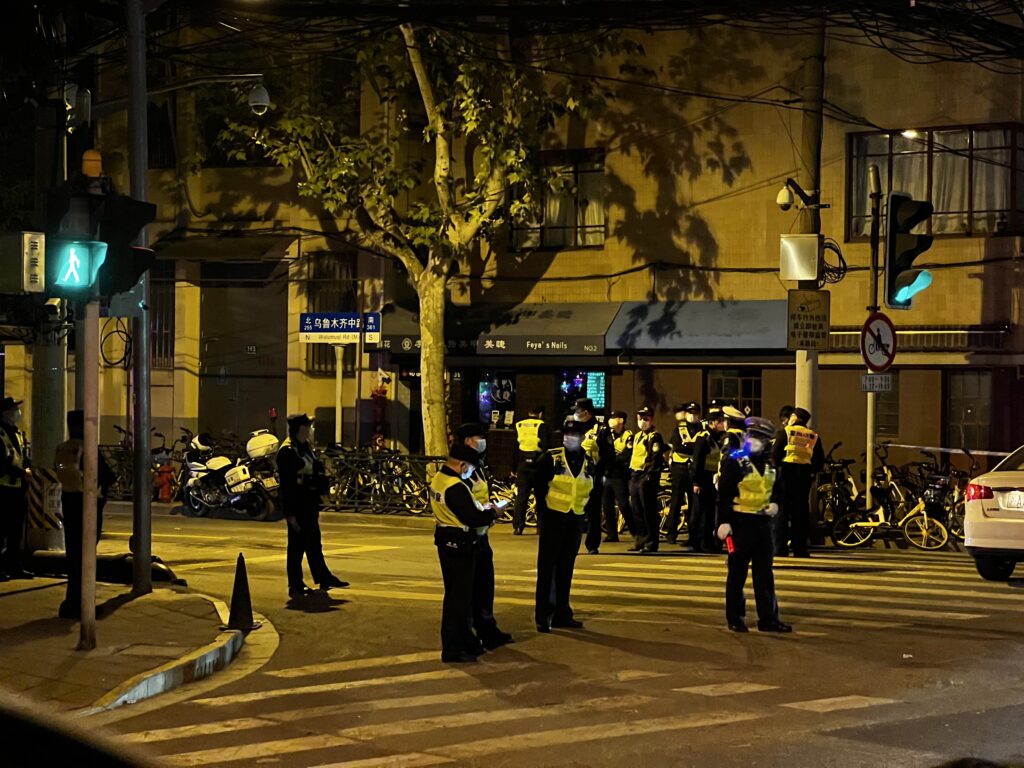A new paper by Jiajun Luo

It is widely reported that the utilization of the crime picking quarrels (寻衅滋事) by Chinese authorities has resulted in the imprisonment of thousands for their online expressions, ranging from complaints about traffic police to criticisms of the ruling Chinese Communist Party (CCP) on social media platforms. Moreover, this catchall category extends beyond speech-related offenses, serving as a tool for political suppression since 2013 and targeting various civil groups in China, including feminists and human rights lawyers.
However, picking quarrels is not confined to politically sensitive cases. Authorities also employ it to enforce state-approved moral standards, leading to the criminalization of individuals for morally contentious actions or speech on social media. For instance, a Douyin (Chinese TikTok) creator received a prison sentence for pretending to engage in a fictional fight against imaginary opponents, deemed as provoking social disorder by local police ((2019) 湘1124刑初119号).
Picking quarrels is legally defined in Article 293 of China’s Criminal Code, encompassing the following actions:
(1) Arbitrarily attacking people with particularly grave circumstances;
(2) Chasing, intercepting, or berating others with particularly grave circumstances;
(3) Forcibly taking, destroying, or occupying public or private property with serious circumstances;
(4) Making a commotion and causing serious disorder in a public place.
Penalties range from supervised release to five years of imprisonment, with up to ten years for those repeatedly inciting others to disrupt social order.
However, the broad and vague application of this offense makes it difficult to establish a direct link between Article 293 and many specific picking quarrels cases. Sub-category 4, “making a commotion,” acts as a catchall within a catchall, allowing authorities to prosecute objectionable acts or speech under the pretext of causing disorder in public venues. Importantly, despite whether a case is politically motivated or not, picking quarrels is applied arbitrarily in both situations. This raises an intriguing question: to what extent is the boundary between political and non-political spheres significant within an authoritarian legal system like China’s?
Today, scholarly debates on “authoritarian legality” in China offer varying views. Optimists view the centralization of power through legalistic means positively, while critics argue that the Chinese legal system, as a whole, deviates from the rule of law, especially under Xi Jinping’s leadership. The theory of legal duality suggests the coexistence of a genuine legal order and a political agenda-driven state. However, many of these arguments assume China’s authoritarian legality is inherently tied to how strong the political nature of the issue is—whether it’s deemed “political” or not.
Despite ongoing debates, the significance of law in governing authoritarian systems is widely acknowledged—and it becomes crucial to grasp the essence and characteristics of authoritarian law. This article introduces the concept of legal rationality to illuminate authoritarian legality. It proposes that, whether a system is democratic or authoritarian, legal rationality denotes the intrinsic value of law that is publicly accessible, transparent, and consistent, serving to restrict the arbitrary discretion of individuals in positions of authority. Thus, if there is a decline in legal rationality within an authoritarian system, then it probably does not solely result in more political prosecutions but could also lead to heightened arbitrariness in non-political domains as well.
In China, post-Mao legal reform (since 1978) aimed to establish legal rationality for prosperity, stability, and regime legitimacy, and of course—also with the hope of helping to prevent political catastrophes like Mao Zedong’s Cultural Revolution. However, under Xi Jinping’s leadership, there has been a decline of legal rationality in both political and non-political spheres. This article offers two explanations for this decline. First, in an authoritarian system, officials tend to exercise arbitrary power as a convenient means to not only exert political control but also address governance issues (they often benefit personally from such actions as well). Second, China’s partial legal rationality has been mainly maintained through self-restraint by the CCP in the post-Mao era. As this self-restraint weakens, both political and non-political spheres are increasingly vulnerable to prerogative power erosion.
The example of picking quarrels vividly illustrates the decline of legal rationality in Xi’s China, leading to arbitrary actions within the political realm and routine criminal justice system. Throughout Mao Zedong’s reign from 1949 to 1978, hooliganism functioned as a versatile crime, diverging from legal rationality by being widely applied across both political and non-political contexts. China’s 1997 Criminal Code has replaced hooliganism with picking quarrels. “Subsequent efforts in the 2000s and early 2010s aimed at rationalizing picking quarrels through clarification of legal terms, moral detachment, and to a limited extent, depoliticization.
However, as mentioned earlier, Xi Jinping’s tenure saw a regression, reversing the trend of rationalization observed in earlier reforms. In both political cases and cases with less political nature, this excessive application of picking quarrels comes at the cost of the rationalization of China’s criminal legal system that had been developed during the reform era. This erosion extends beyond hyper political cases, affecting everyday legal and governance systems, blurring the line between political and non-political realms.
The decline of legal rationality across political spheres and ordinary justice in the case of China highlights the necessity of reevaluating our understanding of authoritarian systems—it might be the (ir)rationality of the law, rather than its political nature, that defines authoritarian legality.
The paper “Authoritarian Legal (Ir)rationality: The Saga of ‘Picking Quarrels’ in China” is forthcoming in Asian-Pacific Law & Policy, Journal Vol. 25, No. 3, 2024 (free draft available at SSRN).
Luo Jiajun is a Research Scholar in the Equality Rights Program at the Faculty of Law, University of Hong Kong. Luo recently received a Dissertation Year Fellowship from HKU for his outstanding (5%) PhD thesis titled “Chinese Courts: Unequal Justice”. From 2021 to 2023, he was a China Law Fellow at Georgetown University. He can be emailed at jiajunlok[at]gmail.com.
